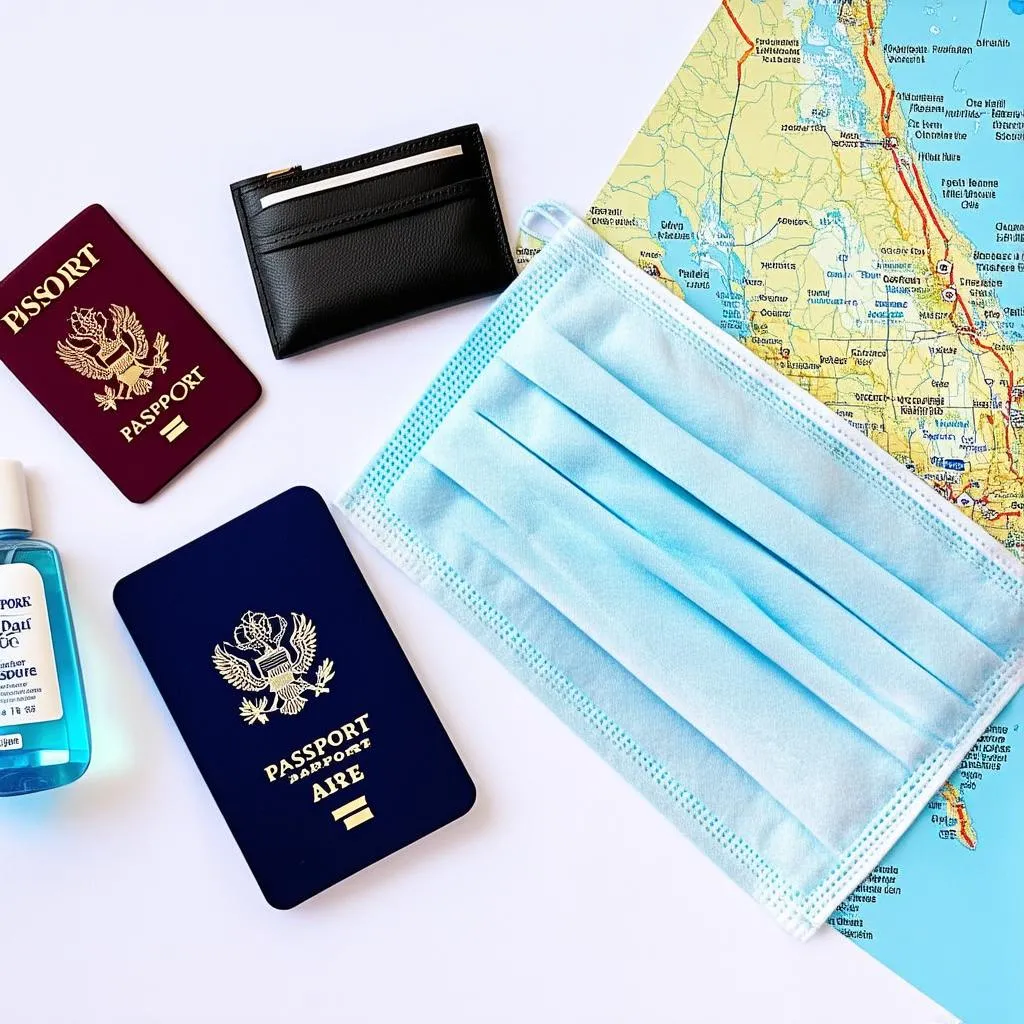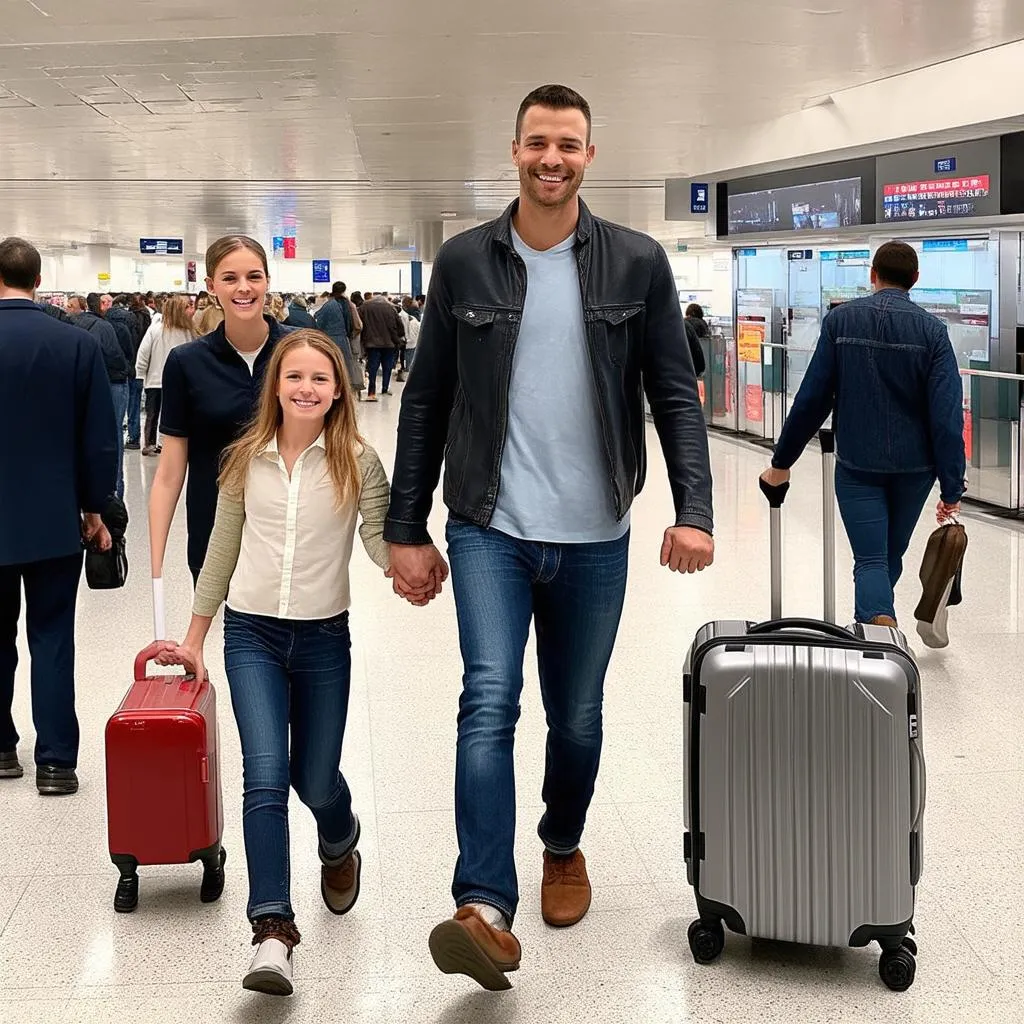“It’s better to see something once than to hear about it a thousand times.” This old adage rings especially true when it comes to travel. The world is vast and bursting with incredible experiences, but safety is naturally a top concern for any traveler. So, what’s the safest way to travel and quench that thirst for adventure without compromising your well-being? Let’s explore practical tips, smart planning strategies, and resources to empower you on your journey.
Understanding “Safe” in a Travel Context
Before we dive in, it’s important to acknowledge that “safe” is subjective and multifaceted. What feels secure for one person might differ for another, depending on factors like personal comfort levels, past experiences, and the destination itself.
For example, a seasoned backpacker might feel entirely safe navigating the bustling streets of Bangkok, while a first-time traveler might feel more secure in a guided tour group. Neither is wrong – it’s about understanding your individual needs and making informed choices.
Practical Tips for Safe Travels
1. Research Your Destination:
Knowledge is power, especially in travel. Before you even pack your bags, delve into your chosen destination.
- Check travel advisories: Websites like the US Department of State and the UK Foreign Office provide up-to-date safety and security information for countries worldwide.
- Research local customs: Familiarize yourself with local customs and laws to avoid unintentional faux pas or misunderstandings. For instance, did you know that chewing gum is illegal in Singapore?
- Learn basic phrases: Knowing a few basic phrases in the local language can be incredibly helpful, even if it’s just “hello,” “thank you,” and “excuse me.”
2. Plan Your Itinerary (But Embrace Flexibility):
A well-structured itinerary is crucial for a smooth trip, especially if you’re short on time or traveling to multiple destinations.
- Share your plans: Let someone trustworthy back home know your itinerary, accommodation details, and emergency contacts.
- Book accommodations in advance: Secure your lodgings beforehand, especially if traveling during peak season. Consider factors like neighborhood safety and proximity to transportation.
- Embrace flexibility: Don’t be afraid to deviate from your itinerary if an opportunity arises or if your gut feeling tells you to make a change.
3. Pack Smart and Light:
Packing strategically can enhance your safety and comfort on the road.
- Pack light: You’ll be more mobile and less vulnerable to theft or loss if you’re not lugging around heavy bags.
- Carry essentials in your carry-on: Keep important documents, medications, and valuables in your carry-on bag, in case of checked luggage delays or mishaps.
- Consider a money belt or hidden pouch: These can be lifesavers for keeping your cash, passport, and credit cards secure and close to your body.
4. Be Mindful of Your Surroundings:
Staying alert and aware of your surroundings is paramount for safe travels.
- Avoid distractions: Keep your phone tucked away when walking in unfamiliar areas, especially at night.
- Trust your instincts: If a situation feels off or uncomfortable, remove yourself from it. It’s always better to err on the side of caution.
- Be cautious with alcohol consumption: Overindulging can impair your judgment and make you more vulnerable to theft or accidents.
5. Secure Your Belongings:
Protecting your valuables is essential, whether you’re exploring bustling markets in Marrakech or relaxing on the beaches of Bali.
- Use hotel safes: Most hotels provide in-room safes for storing passports, electronics, and other valuables.
- Be discreet with expensive jewelry: Leave flashy jewelry at home to avoid attracting unwanted attention.
- Be wary of scams: Scams targeting tourists are unfortunately common in many parts of the world. Be skeptical of overly friendly strangers and unsolicited offers.
Choosing Safe Transportation Options
1. Public Transportation:
Public transportation is generally safe and efficient in many cities worldwide, but it’s wise to exercise caution.
- Research routes and schedules in advance: This will help you avoid getting lost or ending up in an unfamiliar area, especially at night.
- Be mindful of your belongings: Keep a close eye on your bags and pockets, especially during rush hour or in crowded areas.
2. Taxis and Ride-Sharing Services:
Taxis and ride-sharing services like Uber and Lyft can be convenient options, but safety measures should be taken.
- Verify the driver’s information: Always confirm the driver’s name and license plate number before getting in the vehicle.
- Use reputable companies: Opt for licensed taxi companies or well-known ride-sharing platforms.
- Share your ride details: Let someone know your estimated arrival time and route, especially if traveling alone at night.
3. Rental Cars:
Renting a car offers flexibility but comes with its own set of considerations.
- Familiarize yourself with local traffic laws: Traffic laws can vary significantly from country to country.
- Be cautious of driving at night: Road conditions and visibility can be challenging in some areas, especially in rural or less developed regions.
- Consider travel insurance: Comprehensive travel insurance can provide coverage for medical expenses, theft, and other unforeseen events.
Additional Tips for Specific Traveler Types
Solo Travelers:
- Stay connected: Let someone know your whereabouts regularly and carry a portable charger for your phone.
- Consider joining group activities: This can be a great way to meet other travelers and explore safely.
- Project confidence: Walk with purpose and maintain a confident demeanor, even if you feel unsure of yourself.
Female Travelers:
- Research local customs: Some cultures have different norms regarding dress and behavior for women.
- Consider your accommodations: Opt for hotels with good security measures and choose well-lit areas when walking at night.
- Trust your intuition: If you feel unsafe, don’t hesitate to remove yourself from a situation or seek assistance.
Traveling with Children:
- Discuss safety rules: Talk to children about stranger danger, staying close to you, and what to do if they get lost.
- Pack essentials in your carry-on: Keep snacks, entertainment, and any necessary medications easily accessible.
- Choose family-friendly accommodations: Look for hotels with kid-friendly amenities and activities.
 Safe Travel Essentials
Safe Travel Essentials
Feng Shui Tips for Safe Travels
In many cultures, travel and exploration are seen as auspicious endeavors. Feng Shui, the ancient Chinese practice of harmonizing energy, offers insightful tips for enhancing travel luck and protection.
- Activate the Northwest corner of your home: This area of your home is associated with helpful people and travel luck. Place a globe, travel books, or photos of your desired destinations here to attract positive travel energy.
- Pack a protective talisman: Carry a small object with personal significance or symbolic meaning for protection, such as a lucky charm or a crystal known for its grounding properties.
- Travel with intention: Set positive intentions for your trip, visualizing smooth travels, enriching experiences, and safe return.
FAQs About Safe Travel
Q: Is it safe to travel to [Destination] right now?
A: The safety of any destination can change rapidly. Always check the latest travel advisories from your government’s foreign affairs department or embassy for the most up-to-date information.
Q: What is travel insurance, and do I need it?
A: Travel insurance provides financial protection against unexpected events that can occur before or during your trip, such as medical emergencies, trip cancellations, lost luggage, and more. While not always mandatory, it’s highly recommended, especially for international travel.
Q: What are some common travel scams to watch out for?
A: Common travel scams include fake taxi drivers, rigged ATMs, distraction thefts, and overpriced souvenirs. Be wary of anyone who approaches you unsolicited, and always verify information from official sources.
Q: How can I stay healthy while traveling?
A: Pack a basic first-aid kit, stay hydrated, eat nutritious foods, and practice good hygiene by washing your hands frequently.
 Family Travel Safety Tips
Family Travel Safety Tips
Embrace the Adventure, Travel Safely
Traveling is an enriching and transformative experience, offering opportunities to connect with different cultures, broaden perspectives, and create lasting memories. By incorporating these safety tips into your travel planning, you can embark on your adventures with greater peace of mind.
Remember, the safest way to travel is to be prepared, informed, and adaptable. Trust your instincts, enjoy the journey, and don’t forget to share your stories with us at TRAVELCAR.edu.vn!
For more travel inspiration and tips, explore our other articles:
- Is it Safe to Travel to Israel at the Moment?
- What is a Level 4 Travel Advisory?
- Does Travel Insurance Cover Theft?
We’d love to hear about your experiences and travel safety tips in the comments below. Happy travels!

